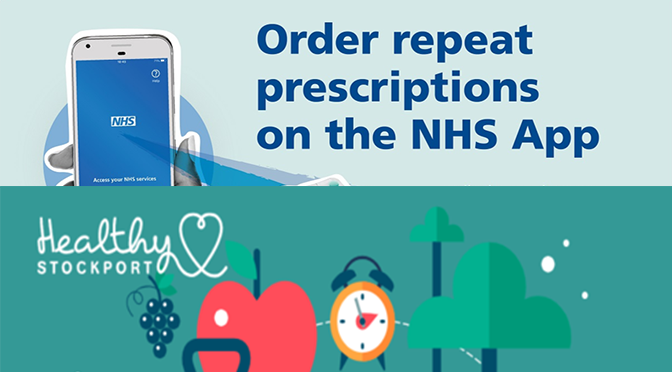Dr Chris Nortcliff, GP, is the Digital Lead on the GM Primary Care Provider Board Delivery Team, and the Clinical Lead on the GM Digital First Primary Care Programme.
Digital is vitally essential for health. Being online gives people better access to information and health and social care services. However, the impact of digital technology on health is more significant than just better access to health services online.
Digital has the potential to reduce demand by increasing self-care. It can also improve social connections, help people make savings to help with the cost of living and improve their employability and environment, with all the wider benefits that these bring.
Digital technology can improve the accuracy of medical records, monitor health, and help people remain independent as they age.
All of this is good news for patients and the efficiency and efficacy of health services. Each prescription ordered electronically through the NHS app saves GP practices three minutes and patients 18 minutes (NHS app data). Those with digital skills book, on average, 4.8 fewer appointments than those digitally excluded, and they reduce their number of calls, too. According to Good Things Foundation, the benefits of people managing their health online could amount to £899m of NHS savings over ten years.
Addressing digital exclusion
4% of people in the UK are offline, and 25% have very low digital capability (Lloyds), making it harder to access online health, care and support. Non-users of the internet are twice as likely to have a disability or health condition compared with extensive users (Good Things Foundation).
As an anchor institution within communities, NHS General Practices must work with other services and sectors to address the causes of digital exclusion and the resulting inequalities, not just treat and manage the effects.
We should use our unique position to collect insight that helps us design digitally inclusive online services and learn from our mistakes. We should use all opportunities to demonstrate successful outcomes to our patients and make no assumptions about digital access.
This is why we are collaborating with Stockport’s DigiKnow alliance to support people as much as possible in getting online and ensure that other things are in place to level them up.
The NHS app
We need to make digital inclusion everyone’s problem! There are already 33 million NHS app users – patients who have the potential to make appointments, access health records and order repeat prescriptions (NHS app data).
We are actively championing the app’s benefits and making getting support as easy as possible. Two great local videos have been recently produced to guide patients on how to use the app and the benefits of doing so:
Healthy Stockport
The Healthy Stockport website is a valuable source of online self-care information, top tips and links to local, regional and national support to help Stockport residents stay healthy and well. Fully accessible, with audio and translation functions, and subject areas including:
- vaccinations, screening, health checks
- what to do if you’re unwell
- healthy lifestyles, e.g. healthy weight, stopping smoking, drugs and alcohol
- self-referral and contact details for START (Stockport Triage and Referral Team) for advice and access to local support services to make healthy lifestyle changes
- mental health and wellbeing, 5 Ways to Feel Good
- common long-term health conditions in Stockport
- preventing falls and bone health
Healthy Stockport already receives 43,000 visits a year, and I advocate Stockport professionals signposting to it as a great starting point for finding information and local support.
Greater Manchester Primary Care Blueprint
The Greater Manchester Primary Care Blueprint is a five-year plan for primary care across our city-region. It will help us respond to both a growing and ageing population and increased demand for our care. The blueprint explains how everyone will work together to meet the physical and mental health needs of our residents. It shows where we need to make changes to help people look after their own health and support people in getting the advice and care they need more quickly.
The benefits of increasing our digital capabilities within health are clear. With NHS resources stretched as they are, digital tools can enable Primary Care to work more effectively and efficiently. Patients will benefit from a more effective service and better access to health information that promotes prevention and self-care.
We are already on that path, with 78% of people who are online saying they use the internet to support their health and wellbeing (Ofcom 2023). There’s more we can do, but with the collaborations that are developing across the GM digital inclusion sector, I am hopeful for the future.
Sign up for email alerts for regular updates from the #DigitalStockport blog.

